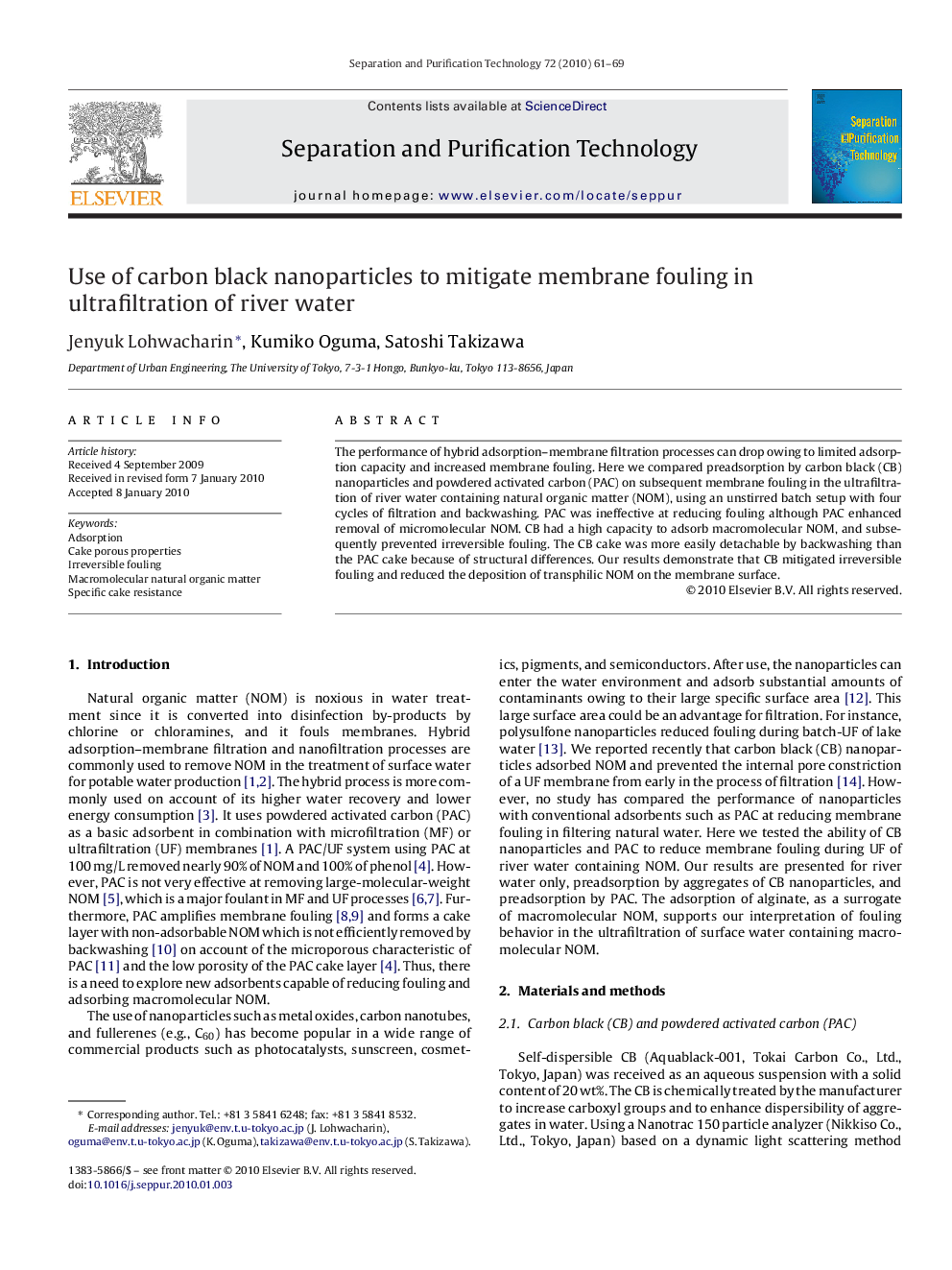| Article ID | Journal | Published Year | Pages | File Type |
|---|---|---|---|---|
| 643007 | Separation and Purification Technology | 2010 | 9 Pages |
The performance of hybrid adsorption–membrane filtration processes can drop owing to limited adsorption capacity and increased membrane fouling. Here we compared preadsorption by carbon black (CB) nanoparticles and powdered activated carbon (PAC) on subsequent membrane fouling in the ultrafiltration of river water containing natural organic matter (NOM), using an unstirred batch setup with four cycles of filtration and backwashing. PAC was ineffective at reducing fouling although PAC enhanced removal of micromolecular NOM. CB had a high capacity to adsorb macromolecular NOM, and subsequently prevented irreversible fouling. The CB cake was more easily detachable by backwashing than the PAC cake because of structural differences. Our results demonstrate that CB mitigated irreversible fouling and reduced the deposition of transphilic NOM on the membrane surface.
